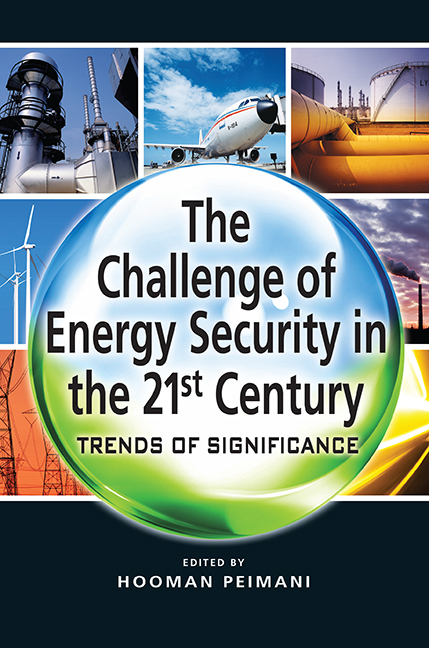Book contents
- Frontmatter
- Dedication
- Contents
- List of Tables and Figures
- List of Maps
- List of Acronyms
- Acknowledgements
- About the Contributors
- INTRODUCTION
- Global Trends in Renewable Electricity, Renewable Fuels, and Markets for Renewable Heating and Cooling
- Resource Mutualism or Codependence? The Water-Energy Nexus in Asia
- OPEC's Long-Term Role in Affecting Energy Security
- Whither a Gas OPEC? Not in the Pipeline
- Shared Interests or Competing Actions: What Drives Energy Security Cooperation between Asia and Europe?
- CONCLUSION
- Index
CONCLUSION
Published online by Cambridge University Press: 21 October 2015
- Frontmatter
- Dedication
- Contents
- List of Tables and Figures
- List of Maps
- List of Acronyms
- Acknowledgements
- About the Contributors
- INTRODUCTION
- Global Trends in Renewable Electricity, Renewable Fuels, and Markets for Renewable Heating and Cooling
- Resource Mutualism or Codependence? The Water-Energy Nexus in Asia
- OPEC's Long-Term Role in Affecting Energy Security
- Whither a Gas OPEC? Not in the Pipeline
- Shared Interests or Competing Actions: What Drives Energy Security Cooperation between Asia and Europe?
- CONCLUSION
- Index
Summary
Without a doubt, energy is a major challenge of the twenty-first century for all economies, large and small alike. The economic upheaval of 2007–10 led to a deep recession in many countries, particularly the largest energy consumers, with the effect of sharply decreasing economic activities and, therefore, energy consumption. In January 2011, there are weak signs of recovery in their respective economies. Nevertheless, the first eleven years of this century have clearly reflected the growing importance of energy for all economies, especially the vibrant and growing Asian ones, both to meet their current needs and also those of their future.
As a general trend in the twenty-first century, energy consumption has been increasing, corrected only for short periods of economic meltdowns throughout the world. This is a reflection of enlarging economies and growing populations whose energy requirements are expanding due to their improving living standards. This reality has increased the importance of energy security as a crucial, if not vital, policy to ensure the ability of all consuming nations to meet their energy requirements while preparing for any potential eventuality.
Regardless of their level of economic development and the living standard of their populations, all countries operate within the international system and its regions to meet their energy requirements. Because of this, various trends in this system and, particularly, in the global energy markets, will affect them all, though to a varying extent, of course, depending on their level of dependency on imported fuels. Such trends could take different shapes and thereby forms of introduction to energy consuming countries, but, regardless of their specific form of implication, they will have short-, medium- or long- term impact on the affected countries. These trends could also have implications for a specific market or markets, while others may have an impact on the entire international energy market.
- Type
- Chapter
- Information
- The Challenge of Energy Security in the 21st CenturyTrends of Significance, pp. 161 - 168Publisher: ISEAS–Yusof Ishak InstitutePrint publication year: 2011



